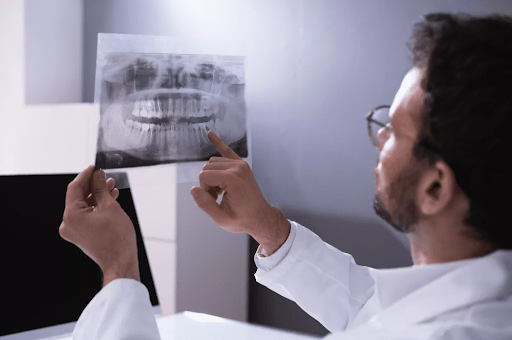Wisdom teeth, what we also known as the third molar, have long been related with pain, irritation, and dental issues, leading multiple people to think that their removal is the best solution for any dental issue. Although, current research and advancements in dental studies have poured light on the potential benefits of keeping wisdom teeth. Arguing to common belief, these molars can have a valuable part in dental health and total health as well. In this informative content, we’ll explore the amusing benefits of keeping wisdom teeth and explore the points that impact on their significance.
Table of Contents
Small Briefing
Wisdom teeth, just like any other teeth, have their advantages. They can assist in chewing, help with speech, and balance the natural figure of your jaw. Although, they might also create problems like overcrowding, pain, and sometimes infection. Maybe the biggest benefit of keeping wisdom teeth healthy is not having to go through oral surgery. For most cases, all four wisdom teeth are taken out due to the arrangement of the teeth and problems they might present later on. When wisdom teeth are healthy, they do not have to be taken out. Hence no surgery is needed.
Chewing Assistance and Digestion

One of the basic benefits of keeping wisdom teeth is their potential assistance to upscale chewing efficiency and further digestion. These molars can help in breaking down fibrous meals, like certain vegetables and meats, these are essential for keeping a balanced diet. Perfectly chewing food not only helps in digestion but also ensures the proper absorption of nutrients.
Few researchers argue that the extraction of wisdom teeth might be related to the growth of digestive problems, Just like indigestion and gas. By keeping these teeth, people might have lesser digestive discomforts and take out the benefits of more thorough chewing.
Balancing Dental Alignment

Wisdom teeth can also have a part in balancing dental alignment, specifically in cases where the rest of the teeth are inclined to shifting or crowding. When wisdom teeth grow perfectly and are in perfect alignment with the rest of the teeth, they can offer structural balance that blocks adjacent teeth from moving into empty gaps. This can take down the risk of misalignment and the requirement for orthodontic surgeries later in life.
Enhancement of Jawbone Health

The presence of wisdom teeth can enhance the jawbone and surrounding mass, inducing overall oral well being. When these teeth come out, they put pressure on the jawbone, which helps the bone to keep its density and strength. Without these wisdom teeth, the jawbone might probably weaken over time, heading to a list of oral health problems, which includes bone loss and a dabbed appearance in the lower part of the face.
Natural Space Fillers
Wisdom teeth can also work as natural space fillers according to this expert dentist in Leominster MA. Over a certain time, teeth are prone to shift and form gaps in the dental alignment, mostly as we age. One of the benefits of keeping wisdom teeth is that it can block attached teeth from moving into these spaces, conserving the total alignment of the teeth and balancing a proper bite.
Protecting Dental Systemic Health

Current studies have shown a potential relation between oral health and systemic health. Protecting wisdom teeth might assist a healthier oral microbiome, which acts in a crucial role in keeping the immune system and taking down the risk of systemic health issues. By keeping a diverse and proper oral microbiome, wisdom teeth could mischievously help to better physical health.
Personalised Approach
Even though there are certain benefits of keeping wisdom teeth, it’s essential to know that the decision should be made on a personalised basis. Pointers like the size of the jaw, the alignment of all teeth, and the risk for complications like impaction or infection must be thought of thoroughly. Scheduled observation by a qualified dentist is important to know whether keeping wisdom teeth is a good option.
The Evolutionary Thought
To truly be aware of the benefits of keeping wisdom teeth, it’s important to think of their evolutionary role. Human ancestors depended thoroughly on a diet that was tougher and needed more chomping, often intake of raw plants and raw meats. Wisdom teeth were important for proficiency in breaking down these edibles, helping in digestion and offering the necessary nutrients for the body.
Even though our dietary needs have evolved over the time period due to cooking and processing methods, the human body has not evolved enough with these changes. Wisdom teeth, which usually come out between the age of 17 and 25, are now usually seen as unnecessary due to our softer, more teeth friendly diets.. There are still proper reasons for keeping these teeth in certain cases.
Quick lookover
As we have reached the end, the traditional concept of wisdom teeth as the problem of our evolutionary past has been contradicted by recent research and a rooted understanding of oral hygiene. While the extraction of wisdom teeth is usually suggested to stop potential issues, it’s essential to know that these molars can provide important benefits when they grow properly. From helping in chewing properly and balancing dental alignment to supporting jawbone posture and inducing a healthy oral microbiome, wisdom teeth have amusing benefits that should not be ignored.
To draw a conclusion, the decision to keep or extract wisdom teeth should be based on a thorough examination by a dentist.















